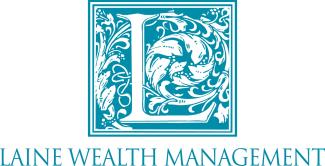
Traditional Whole Life Insurance
Traditional whole life insurance, also known as ordinary life or straight life, is a type of permanent (cash value) insurance that provides coverage for your entire life. This kind of policy is sometimes described as plain vanilla insurance. You pay a fixed amount, known as a level premium, each payment period (monthly, quarterly, semiannually, or annually), and a guaranteed death benefit goes to your beneficiary when you die. Your premium amount is guaranteed to remain level for as long as you live, even if the insurance company's costs rise. When you reach old age, your premium will not increase over the amount you paid when you started the policy.
How a traditional life insurance policy works
The insurance company calculates level premiums sufficient to pay the cost of your insurance coverage (mortality costs) to the end of your life. In the policy's early years, the level premiums are higher than the mortality costs. The difference between the mortality costs and the level premiums is placed into a cash reserve account known as the cash value. In later years, as mortality costs rise due to your advancing age, your level premiums are lower than the mortality costs, and your policy draws on the cash value to help pay the insurance costs. As the cash value accumulates over the years, the amount of your actual insurance coverage is reduced by an equal amount.
For example, say you buy a $100,000 policy at age 30. Since you have no cash value in the beginning, you are paying for $100,000 of insurance coverage. If you have $10,000 of cash value by age 40, you'll then be paying for $90,000 of coverage. Your cash value will continue to rise, and the amount of insurance coverage will continue to fall.
If you continue to keep up your premium payments, your cash value will eventually grow to an amount equal to your policy's death benefit. In fact, if you happen to live to the policy's maturity date (generally age 95 or 100), the company will pay the accumulated cash value (by then equal to the death benefit) to you. But if you die at any time before you reach the maturity date, your beneficiary receives the full, guaranteed death benefit, no matter what the amount of your cash value at the time of your death.
Accessing your money in the policy
Your cash value can be used as collateral to obtain policy loans from the insurance company at interest rates stated in the policy contract. This rate is often fixed, typically about 8 percent, or it may vary according to an index. These loans are tax free and will not affect the growth of your cash value. But remember, the cash value is designed to support your policy's death benefit. If you are unable to repay the loan, the proceeds paid to your beneficiary after your death will be reduced by the amount of the loan, plus outstanding interest. The other way to access the cash value of your traditional whole life insurance policy is through a complete or partial surrender (cancellation) of your policy. However, surrender will terminate all or part of your coverage and may have tax consequences.
Policy dividends
For policyowners, an additional benefit contained in some life insurance policies is dividends. In order for a policy to pay dividends, it must be a participating policy. Nonparticipating policies pay no dividends. Dividends are not guaranteed, but are paid at the discretion of the insurance company's board of directors, depending on a company's expenses, the performance of its investments, and the amount of death benefit payouts made in a year. The amount you receive is determined by a formula that takes into account the policy series, the size of your policy, your age, and the number of years the policy has been in force.
Policy dividends are free from income tax because they're considered a return of premiums you have paid and can be taken in cash, used to pay some or all of the policy premium, reinvested to gain (taxable) interest, or used to buy paid-up insurance additions to the policy (for which no further premiums are required). You may surrender accumulated paid-up additions in later policy years and use the proceeds to pay the regular policy premiums.
Other uses of cash value
If the time comes when you feel you are unable to continue making premium payments or you feel you have more insurance coverage than you need, but you don't want to surrender or take a loan against the policy, you have a number of alternatives. Based on the size of your cash value account, you could use your cash value to purchase what is known as reduced paid-up insurance, whereby your coverage amount is lowered and no further premiums are required. Or, you could turn the cash value into extended term insurance, which would provide the same level of death benefit you now have, but for a limited period of time.
The opinions voiced in this material are for general information only and are not intended to provide specific advice or recommendations for any individual. To determine which investment(s) may be appropriate for you, consult your financial advisor prior to investing. All performance referenced is historical and is no guarantee of future results. All indices are unmanaged and cannot be invested into directly.
The information provided is not intended to be a substitute for specific individualized tax planning or legal advice. We suggest that you consult with a qualified tax or legal advisor.
Both loans and withdrawals from a permanent life insurance policy may be subject to penalties and fees and, along with any accrued loan interest, will reduce the policy’s account value and death benefit. Withdrawals are taxed only to the extent that they exceed the policy owner’s cost basis in the policy and usually loans are free from current Federal taxation. A policy loan could result in tax consequences if the policy lapses or is surrendered while a loan is outstanding.
Guarantees are based on the claims paying ability of the issuing company.
LPL Financial Representatives offer access to Trust Services through The Private Trust Company N.A., an affiliate of LPL Financial.
LPL Tracking Number: 1-183408

